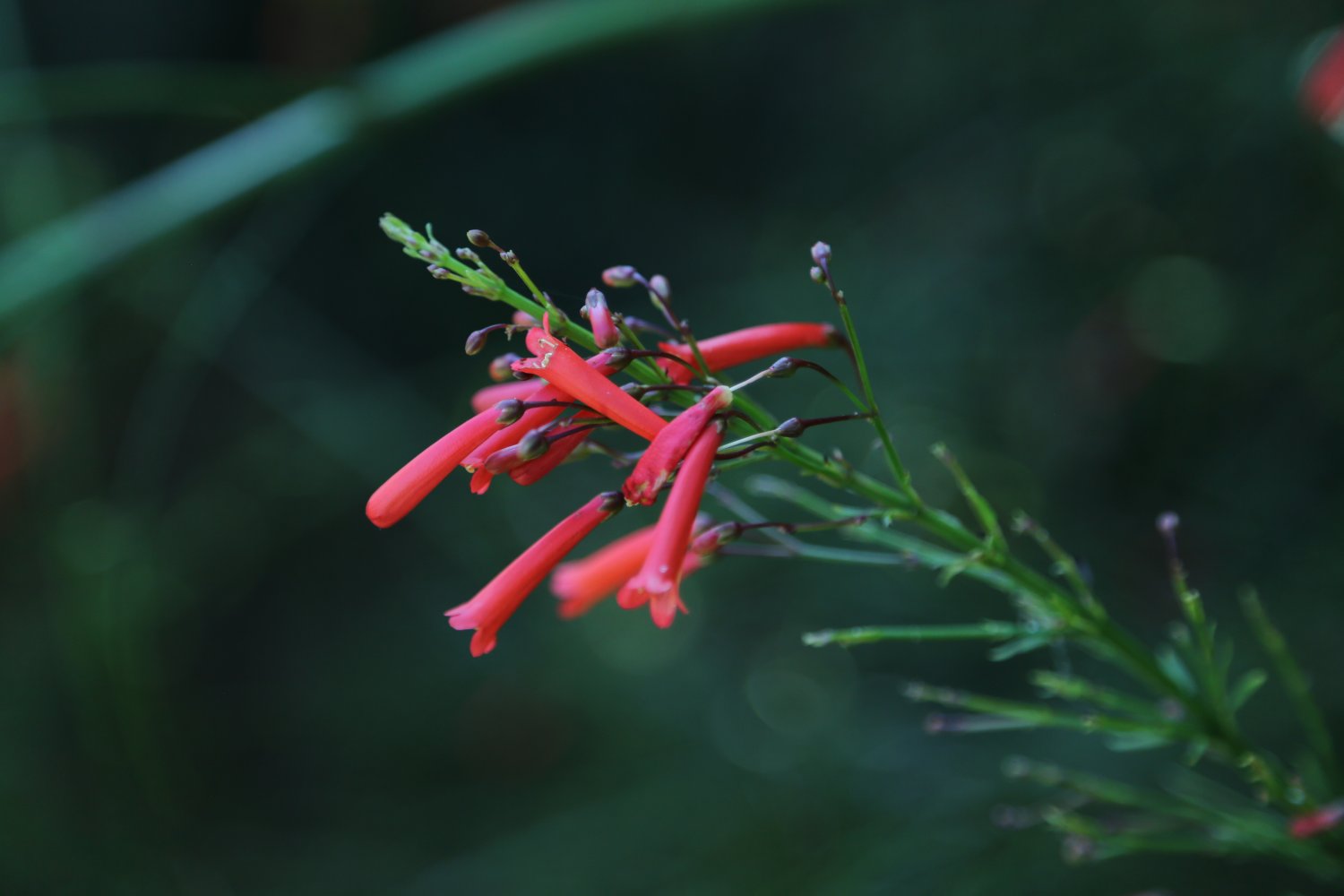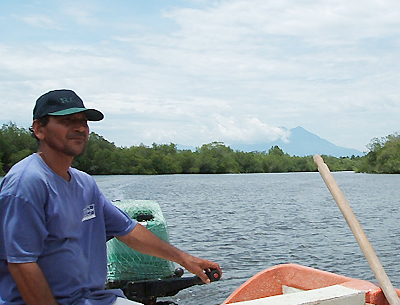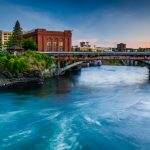 The end of 1970s was a turbulent period in Salvadorian politics. Various juntas formed and collapsed, tension soon spilled indo an epidemic of underground political violence and murders, until at some point a war against the government was declared by a leftist coalition (FMLN). After a 12-year carnage peace was finally struck in 1992, with the government taking necessary reforms to stay in power, and the FMLN re-organising into a political party.
The end of 1970s was a turbulent period in Salvadorian politics. Various juntas formed and collapsed, tension soon spilled indo an epidemic of underground political violence and murders, until at some point a war against the government was declared by a leftist coalition (FMLN). After a 12-year carnage peace was finally struck in 1992, with the government taking necessary reforms to stay in power, and the FMLN re-organising into a political party.
It was not your normal war, even as far as civil wars go. There were bombings by the government and battles between fronts, but most of it was the constant undercurrent of vigilante death squads, punitary expeditions, vendettas and tortures, which targeted the population even in times of relative calm. Some fighting units never even faced an armed enemy, “specialising” instead in civilian targets. El Salvador is scarred not as much by violence as by terror.
Whether you cross over from Honduras or Guatemala, the first thing that strikes you is a deficit of indigenous physical features. Although most people are, of course, meztiztos, El Salvador is one of the most European-looking countries in Latin America. The indigenous population (the poorest and most abused) was always on the receiving end of the repression, not just in the war, but also in all of the uprisings of the XX century. El Salvador does have a very poor human rights record.
The second thing you notice is how Americanised the country is. El Salvador is one of the places where US Latin American foreign policy fully succeeded. I had never seen so many US fast food chains, shining shopping malls and advertising boards in one place. The full-blown capitalism creates an impression of prosperity and affluence. Yet once you look into El Salvador’s rural areas and find out a thing or two about Salvadorian economy, destroyed by war, you realise who is profiting. Unprotected markets, no questions asked.
While this is the stuff that drives Castro, Chavez and Morales insane, there seems to be no grudge in El Salvador. First, I think there is an element of gratitude. US involvement in the war might have been controversial, but they also accepted masses of refugees. El Salvador has a population of just under 7 million people. The US is estimated to have 2 million resident Salvadorians. Many are well settled and the links are strong. Some say the economy survives thanks to the money some family members earn in the States. And, whether for their own profit or not, the US did invest in the post-war reconstruction.
Secondly, this migration has almost made the country the States’ little cousin. With so many families communicating over the borders and visiting each other regularly, there is almost a sense of belonging. It’s not uncommon to hear “New York” when you ask a Salvadorian where he is from. Neither it is uncommon to hear “Hey, man, got a nickel or a dime?” from a beggar on the street. If your Spanish is bad, this is one of the easiest countries in the region to travel in. Apart from the fact that you have to use US dollars – I always find it difficult to quickly tell how much money I have in my wallet if all notes are of the same colour.
And lastly, such close ties slowly but surely converted the Salvadorians. I found they generally like all kinds of American things. Consumerism is high and the cultural influence is huge. When I expressed my infuriation at the fact that the US government pressured the country’s structures to make it impossible for the now political leftist FMLN to win the last elections, I was told the results reflected general opinion. If you are jealous, marginalized and have nothing to lose, I was told, you will join the FMLN to take what other people have earned, but if you are even the smallest business owner, the FMLN is a joke.
 Yet, this pro-US sentiment is, naturally, counteracted by some anger. The United States backed the Salvadorian government during the war. Even when the death squads and human rights abuses came to light, Reagan kept sending money and army trainers. Experts agree that most Latin American conflicts are uprisings against class injustice and abuse, yet he was waging his Star War in a Red Alert fostered by the Evil Empire. In the end, the profits have been reached. And 22 of those troops, who were meant to only train government soldiers, died in combat missions.
Yet, this pro-US sentiment is, naturally, counteracted by some anger. The United States backed the Salvadorian government during the war. Even when the death squads and human rights abuses came to light, Reagan kept sending money and army trainers. Experts agree that most Latin American conflicts are uprisings against class injustice and abuse, yet he was waging his Star War in a Red Alert fostered by the Evil Empire. In the end, the profits have been reached. And 22 of those troops, who were meant to only train government soldiers, died in combat missions.
The Salvadorians are sturdy people with their heads straight. Many know what’s going on and a few find it hard to hide their anger. It is a complex relationship.
As for the war, there seems to be little physical sign of it 13 years later. As I said, it wasN’t a war of carpet bombings and acres of minefields. The only building I saw that bears that history is the San Salvador University – one of the usual epicentres of the leftist resistance (as everywhere else), – covered in socialist graffiti with the usual set of actors – Castro, Guevarra, Arafat, etc. Looking at it you understand that the idealism in that war was no joke. However, it is the people who bear the scars. Those who were killed were buried. The rest have agreed that it is time to forgive. There seems to be a pact of silence, I didn’t see a single animosity. Two 30 year-old brothers cuddling a 10 year-old sister, a generation of war between them. Amputees, disabled, orphans. I am not usually very sensitive to street kids but there they were something else. They wept alone, oblivious to the people they were meant to ask from, smudging years of smog over their faces, their insanity was too distant from this world to touch anyone, and they didn’t even walk off the road to fall asleep.
What was it about? We have our theories and we operate with concepts of right and wrong. But many Salvadorians simply don’t know. Francisco, a boatman with 7 years of fighting and three bullet holes in him, is not pondering the philosophy of righteous and unrighteous wars, when he says he has no idea. They recruited me and send me to shoot the other guys. If I hadn’t they would have killed me. In many places 13 was the recruitment age, and both sides did it.
The real scars are in the psyche. The Salvadorians are friendly but many are somewhat quiet. They seem to be often happy, but it feels like the happiness of relief. They are welcoming but it is written all over their foreheads that you shouldn’t mess with them. They are disciplined and tough, they didn’t dwell on the wounds, they just went straight to work and rebuilt the country.
But one thing where the trauma of the terror is most apparent is their obsession with security. The English talk about weather, the French about wine and the Salvadorians about violence. All the time.
The violence did not finish with the war. Unemployment, devastation and proliferation of weapons drove huge numbers onto the streets. To this day, the two most numerous and vicious gangs in Central and North Americas are from El Salvador. Things have got a hell of a lot better recently, it’s just no one seems to notice.
 Don’t go here, you’ll get killed. Don’t go there, you’ll get killed. Don’t get a bus after dark (if there a silly one that will go, that is), if you get a punctured wheel you are sitting ducks. Don’t leave the door open even in daylight, etc. To be fair, El Salvador can be edgy, and a couple of times I came to an invisible line where things would spin totally out of plan one step further. It kinda creeps up on you. But much of it sounded (and turned out to be) pure paranoia.
Don’t go here, you’ll get killed. Don’t go there, you’ll get killed. Don’t get a bus after dark (if there a silly one that will go, that is), if you get a punctured wheel you are sitting ducks. Don’t leave the door open even in daylight, etc. To be fair, El Salvador can be edgy, and a couple of times I came to an invisible line where things would spin totally out of plan one step further. It kinda creeps up on you. But much of it sounded (and turned out to be) pure paranoia.
There are shotguns every 50 yards. Half of the nation is employed as security guards. There aren’t even enough uniforms for everyone, a white shirt means a good guy, like in a spaghetti western. And they all kept asking me if I can help them find work in UK. I had to repeat over and over again that the demand for skilled shotgun workers is currently low there.
Security is a commodity everywhere. I am not even talking about house alarms and garden walls. Even a club night flyer will say: International DJs, discounts on drinks, light show, secure site with security guards.
Especially paranoid are the upper classes. Not only they live in fortresses with a 7 – metre wall crowned with an electric barb wire, they simply refuse to walk out of the house unless it is in a car. They never take buses. They say, in a country so small everyone knows who everyone is. I simply couldn’t believe that, and they gave up on trying to explain.
The moment of truth came when a guy gave me the usual hour-long tirade about violence, at 11 o’clock at night, well after dark, then opened his front door for some fresh air and calmly sat down for another hour. I concluded that he wasn’t really afraid, the whole talk is a habit.
Perhaps El Salvador is by no means safe, but neither is Guatemala, yet families go there all the time. I saw more violence in both Guatemala and Mexico, yet I spent less time in the two of them put together than in En Salvador. It is a beautiful country with beautiful people, and it just doesn’t help tourism when everyone is told that they will be shot. Old habits die hard and I really think the habit is mostly all there is to it now.







Leave a Reply